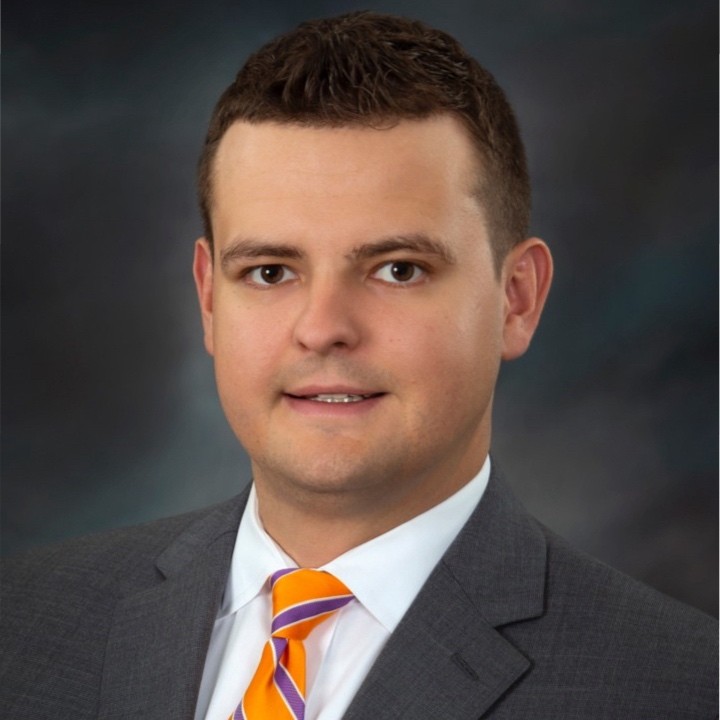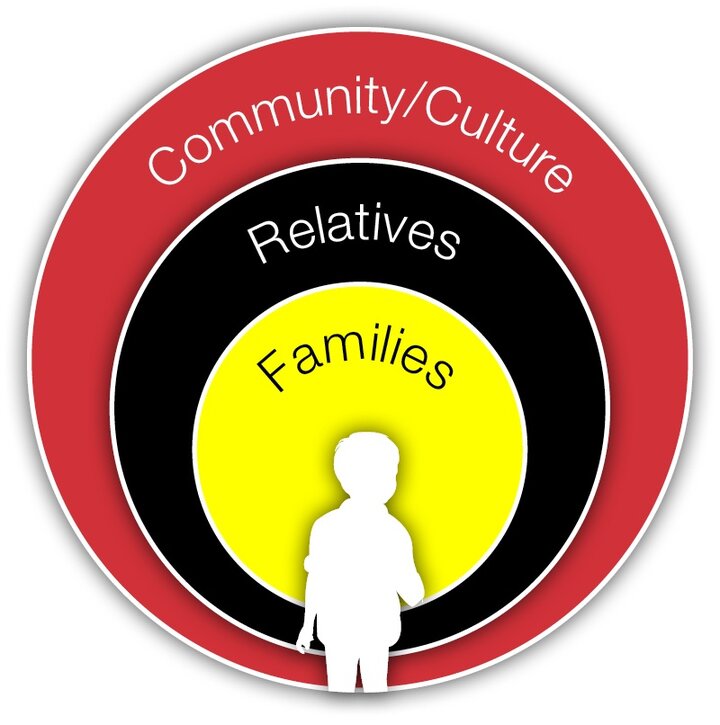
John Knisely, '22
by John Knisely
John Knisely is a graduate of the University of Nebraska College of Law. He received his J.D. in May of 2022 and works as an attorney in private practice in Montana. During his 3L winter break, John volunteered with Montana's 13th Judicial District Yellowstone County Indian Child Welfare Act Court. He shared more about the experience with "hope that another law student would be inspired to explore similar work or service opportunities."
During the winter break of my 3L year, I served as a volunteer in the Montana 13th Judicial District Yellowstone County Indian Child Welfare Act Court (“Yellowstone County ICWA Court”). I chose to work in the Yellowstone County ICWA Court because while I had fantastic public service internships during my time as a law student, my opportunity to work with Native American tribes was limited. Volunteering with the Yellowstone County ICWA Court allowed me to experience a new area of law while also aiding a population that has been historically underserved in my home state.
Dependent Neglect (“DN”) cases are filed in the Yellowstone County District Court when Child Protective Services (“CPS”) removes a child due to abuse or neglect. Since 2014, removals in Montana have substantially increased due in large part to substance abuse, particularly methamphetamine. A substantial percentage of these removals affect children and families of Native American descent.
The Yellowstone County ICWA Court was implemented in 2017. The Yellowstone County ICWA Court seeks to comply with the letter and spirit of the ICWA, improve tribal/state government-to-government relations, and achieve familial permanency for Native American children while maintaining cultural and family connections. If a child removed by CPS is enrolled or enrollable in the Crow, Northern Cheyenne, or Fort Peck Tribes (Assiniboine and Sioux), the case is assigned to the Yellowstone County ICWA Court.

The core mission of the Yellowstone County ICWA Court is to develop relationships with tribal partners, thereby increasing communication and collaboration to improve outcomes for Native American children. Throughout the case progression, tribal input via each tribe’s ICWA agent or legal representative is welcomed. In addition, CPS regularly staffs pending ICWA cases with the tribes. As with any CPS case, parents are provided with treatment plans tailored to address their needs and to ensure the safe return of their children. The ultimate goal is reunification of the family. However, where parent-child reunification is not possible, efforts are made to place children with tribal family members or families within the tribe.
These efforts are required under the Indian Child Welfare Act, which was passed by Congress in 1978 to reverse the effects of the historic removal of Native American children and placement in non-tribal homes during the boarding school era.[1] As stated by U.S. Supreme Court Justice Neil M. Gorsuch:
"The Indian Child Welfare Act did not emerge from a vacuum. It came as a direct response to the mass removal of Indian children from their families during the 1950s, 1960s, and 1970s by state officials and private parties. That practice, in turn, was only the latest iteration of a much older policy of removing Indian children from their families—one initially spearheaded by federal officials with the aid of their state counterparts nearly 150 years ago. In all its many forms, the dissolution of the Indian family has had devastating effects on children and parents alike. It has also presented an existential threat to the continued vitality of Tribes—something many federal and state officials over the years saw as a feature, not as a flaw."[2]
The Yellowstone County ICWA Court is one of 22 courts in the nation utilizing this model that seeks to reverse the historic government measures that had the effect of extinguishing native cultures.[3] Specifically, I was asked by Judge Rod Souza, who presides over the Yellowstone County ICWA Court, to review case files and collect data regarding placement preferences and case dispositions. Both the ICWA and the federal regulations establish placement preferences for Indian children. See 25 U.S.C. § 1915 ; 25 C.F.R. §§ 23.130-131.
Pursuant to the ICWA, “in any adoptive placement of an Indian child under State law, a preference shall be given, in the absence of good cause to the contrary, to a placement with (1) a member of the child’s extended family; (2) other members of the Indian child’s tribe; or (3) other Indian families.” 25 U.S.C. § 1915 (a). Further, when foster care or preadoptive placement is appropriate under State Law, Indian children must be placed in the least restrictive setting which most approximates a family and in which the child’s special needs, if any, may be met. The child shall also be placed within reasonable proximity to his or her home, taking into account any special needs of the child. See 25 U.S.C. § 1915 (b).[4] Notably, consistent with C.F.R. §§ 23.130-131, the ICWA placement preferences codified at 25 U.S.C. § 1915 (c) provide that where an Indian child’s tribe establishes a different order of preference by resolution, when conducting adoptive, foster care, or preadoptive proceedings, State courts are to follow such order so long as the placement is the least restrictive setting appropriate to the particular needs of the child.
In the case review I conducted, the Yellowstone County ICWA Court was able to place 89% of previously removed youth in ICWA preferred placements at the time of case adjudication. Using my education and legal abilities to help a more than deserving group was a rewarding way to spend my semester break. However, this experience exposed me to the difficult reality that child abuse and neglect in Montana communities is almost always accompanied by some form of substance abuse, particularly alcohol and methamphetamine use. Likewise, the Yellowstone County ICWA Court recognizes the destructive impact this overlap has on tribal families. As such, the Yellowstone County ICWA Court continues to work diligently to heal and restore tribal families with sobriety and recovery as a program cornerstone.
To read more stories on JDs Advancing Justice, click here.
[1] The Indian Child Welfare Act of 1978 (ICWA) ((Pub.L. 95–608, 92 Stat. 3069, enacted November 8, 1978), codified at 25 U.S.C. §§ 1901–1963.) is a federal law that governs jurisdiction over the removal of Native American (Indian) children from their families.
[2] See Gorsuch, J., concurring in Haaland v. Brackeen, 599 U.S. 255, 297, 143 S. Ct. 1609, 1641, 216 L. Ed. 2d 254 (2023).
[3] About ICWA Courts, NATIONAL CENTER FOR JUVENILE JUSTICE, https://www.ncjfcj.org/child-welfare-and-juvenile-law/icwa-courts/ (Last Visited August 30, 2024).
[4] Under both 25 U.S.C. § 1915 & 25 C.F.R. §§ 23.131, preference is given to a member of the Indian child's extended family; a foster home licensed, approved, or specified by the Indian child's tribe; an Indian foster home licensed or approved by an authorized non-Indian licensing authority; or an institution for children approved by an Indian tribe or operated by an Indian organization which has a program suitable to meet the Indian child's needs.